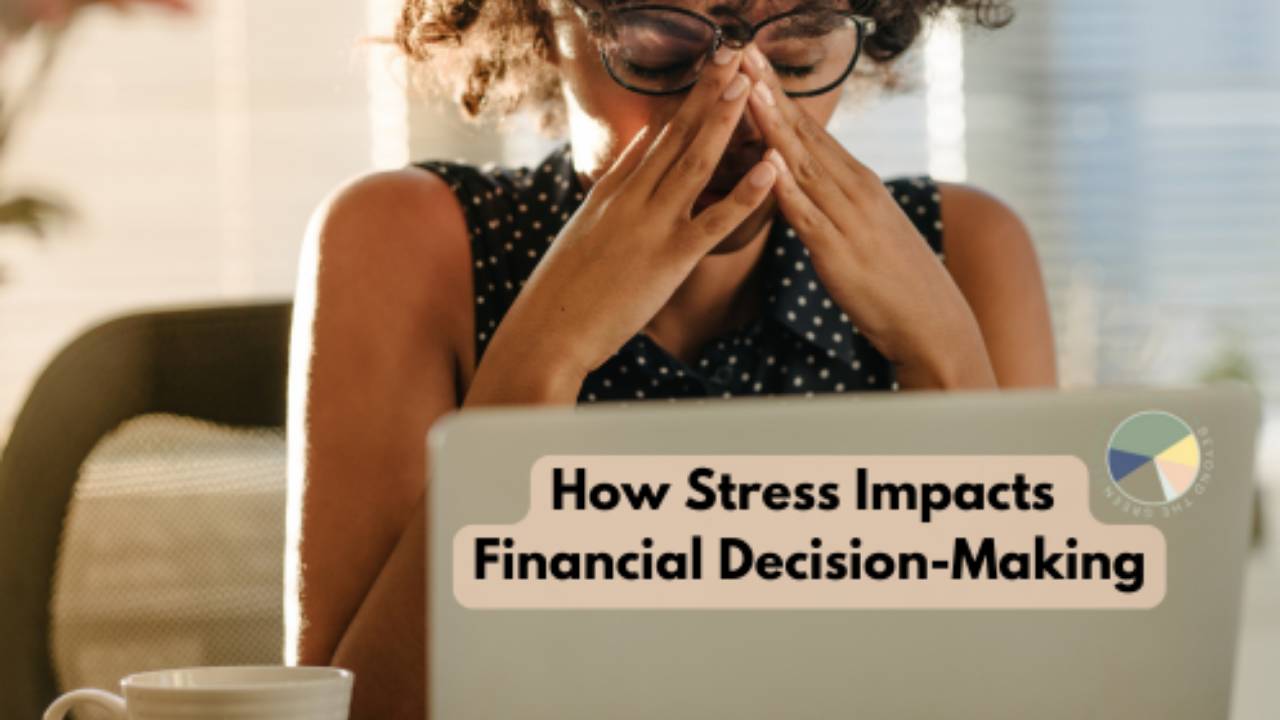How Stress Impacts Financial Decision-Making
Apr 30, 2025
Avoidance: The Hidden Cost of Financial Stress
Do you know how many clients tell me, “I’ve never talked to anyone about my money until now”? SO many.
It’s wild when you think about it.
We spend money more often than we go to the bathroom, yet most of us avoid dealing with it. Why? Because financial stress makes even small tasks—like opening your monthly bills, making a debt payment, or checking your account balance—feel like climbing a mountain.
When you’re stuck in a chronic state of stress, every financial decision feels like a boulder.
Paying a bill on time? Setting up auto-pay? Asking a question about a charge you don’t recognize? It’s just a few clicks or a phone call—but to someone operating in fight-or-flight mode, it feels insurmountable.
That’s the result of living in a constant state of sympathetic nervous system activation. Stress hormones make it hard to think clearly, plan ahead, or take simple steps to change your financial situation.
The Problem with Indecision
Indecision is actually a symptom of financial stress. Instead of facing debt, we avoid it. We ignore bills, dodge phone calls, and pretend the problem doesn’t exist. But the debt, the bills, the [enter your financial challenge here] don’t disappear on their own.
When you avoid your finances, the small tasks grow and build on each other, creating a vicious cycle of stress and inaction.
Here’s what financial stress might look like in everyday life:
-
You need a vacation to escape burnout, so you take on more debt without thinking about how to pay it off.
-
Your car breaks down, and instead of weighing your options, you finance a new one on impulse.
-
You’re emotionally drained, so you overspend on retail therapy to feel better in the moment.
-
You delay paying bills because it’s too emotionally exhausting to deal with today—and then the late fees start piling up.
Every transaction becomes another source of stress. The anxiety of potentially over-drafting your account or having a card declined reinforces the fear of facing your financial reality.
But it doesn’t have to feel this way. There’s a way to heal your nervous system, break the avoidance-stress cycle, and rebuild a healthier, more empowered relationship with your money—one small step at a time.
How to Sand Down the Boulder
The key to breaking the cycle of avoidance is to make financial tasks smaller and more manageable.
Instead of telling yourself you have to “fix everything” overnight, start with one simple step:
-
Open one bill today and review it.
-
Write down the balances on your accounts without judgment.
-
Make one phone call to ask a question or get information.
-
Schedule one small payment—even if it’s just the minimum.
When you approach these tasks one step at a time, you turn the mountain into a series of small, achievable goals. When you break tasks down this way, you stop treating money like an enemy. Each step builds confidence and trust and reduces the overwhelming sense of fear.
Facing Your Financial Fears
Taking these small steps is not about eliminating fear entirely. Fear is natural. But by recognizing how stress affects your decisions, you can regain control. Financial health starts with small, intentional actions. Sand down the boulder, tackle one pebble at a time, and you’ll find that what once felt impossible is entirely within your reach.
Did you know you could be saving thousands of dollars in interest by using a balance transfer card?
Beyond The Basics: Our Glossary Of Financial Terms
We define the lingo you'll need to become a finance expert!
We hate SPAM. We will never sell your information, for any reason.






